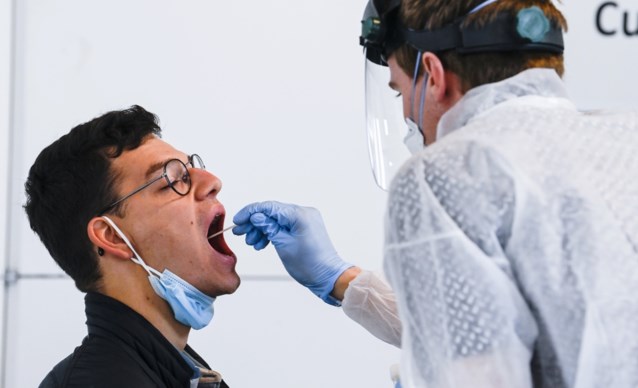The changes to the country’s testing strategy for Covid-19 announced this week have caused widespread upset among experts, family physicians and business.
On Monday, it was announced by federal health minister Frank Vandenbroucke (sp.a) that people would only be tested for Covid-19 from today if they had symptoms, and not if they had been in a high risk contact. Until 15 November, anyone who suspected they might have been in a situation where they might have contracted the virus should simply self-isolate and wait to see if symptoms develop.
General practitioners, who are on the front line of enquiries from patients, complained they only learned about the new strategy from the media.
“GPs have been under incredible pressure for a long time,” said Roel Van Giel, president of the GPs’ association Domus Medica.
“It was important for us to move towards an adapted testing strategy. The proposed measures are the only right ones for us at the moment. However, the way of communicating is absolutely inadmissible. It is a blow to all GPs who have been in the firing line for months,” he said.
The health ministry blamed the fact that the details of the new strategy had been leaked prematurely to the media.
“We decided together to communicate only after the GPs and other stakeholders had been informed, but that entire strategy has been destroyed by one or two loose-lipped people,” said Vandenbroucke yesterday.
“I find that very annoying for our GPs. But they get the information today.”
Related News
- 'We could have avoided this,' says Marc Van Ranst
- Explaining Belgium's new Covid-19 testing strategy
- Belgium will stop testing people without Covid-19 symptoms
Meanwhile Unizo, the organisation that represents small business in Flanders, complained at the lack of rapid testing in the country, and the effect on business.
“Has anyone actually thought about what this means for our business owners?” said Danny Van Assche, director-general of Unizo.
“This means they have to miss employees who feel perfectly healthy even longer than before. Even entrepreneurs who had high risk contacts themselves but feel fit can no longer have themselves tested to return to work after seven days and are now forced to sit at home for an extra long time. This is yet another attack on the right to do business.”
Meanwhile Vandenbroucke defended the decision to switch strategies with little advance notice, at a time when testing ought to be one of the main pillars of the effort to slow the growth of infections.
The government, he said, has to take account of the fact that there is a shortage on the world market of the reagents required for the test procedure, and the capacity of GPs and labs to keep up with the demand.
“We have to make do with what we have,” he said.
“If we don't adjust our priorities, the system will capsize at the level of the GPs and the laboratories. And nobody is served by that, because test results need to be returned quickly.”
Alan Hope
The Brussels Times

